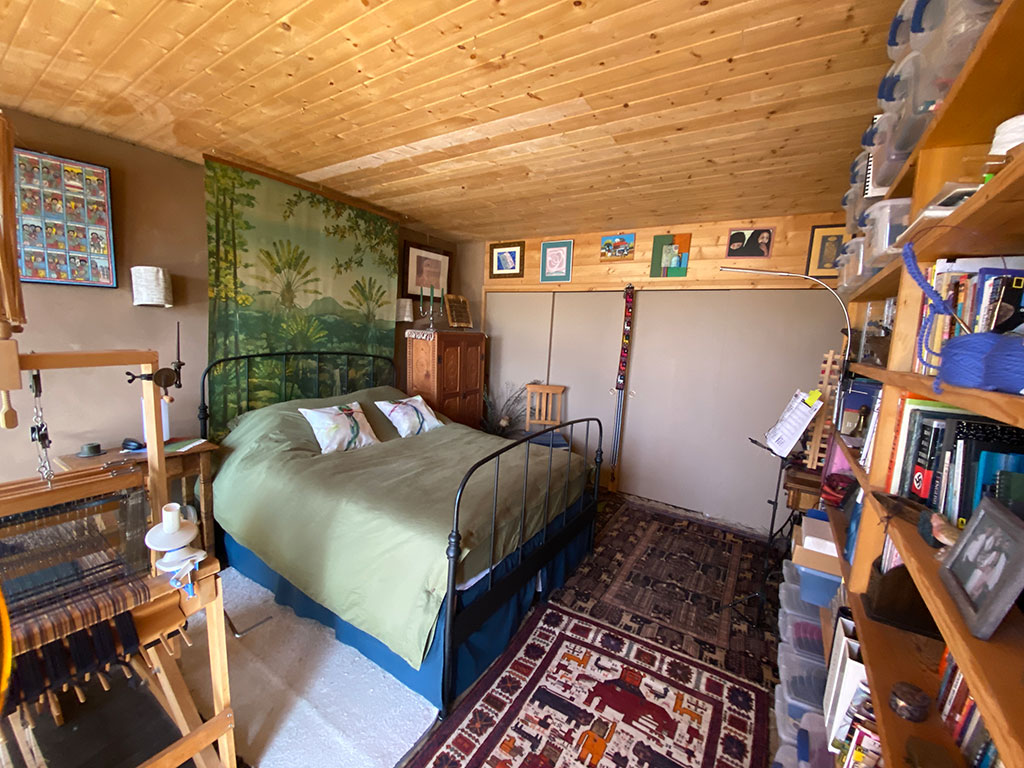-
Eat meat-free and 99% vegan plus buy organic produce/products
-
Try to limit driving; drive a hybrid and plan to buy an EV next. I stopped flying but mostly due to getting away from it during covid and realizing how unpleasant it can be.
-
All personal care and cleaning products are nontoxic/biodegradable and will be buying more in bulk in future (trying to create a zero-waste diet)
-
Buy used furniture and products whereever possible (including on Amazon or Ebay)
-
Buy used or organic cotton clothing
-
Don’t have AC but if I get it I will buy a heat pump
-
Compost
-
Try to limit energy use and installed LED bulbs; planning to add more attic insulation
-
Monitor my purchases (including used) and take a 30 day haitus if I feel I’m buying too much – but would like to do better on this
-
Have a little free library to help the community reuse books and I also use it to give away little things I don’t need
-
Recycle what I can and drop off hard-to-recycle items at a local HTR event
-
Shop with reusable grocery and produce bags
-
Use organic cotton rags instead of scott towels
-
Try to cook in bulk and freeze extra servings
-
Donate whatever I don’t need and try to minimize what I own (and plan to minimize further)
-
Donate or recycle shipping material
-
For the last several holidays, I’ve asked family to just give me micro-loan kiva.org gift cards. For the last two holidays I’ve also asked if they would like me to donate to a charity of their choice (and most are taking me up on it!). I still get some gifts, but less now. I and some other family members have really enjoyed giving out the micro-loans. Almost all are repaid so every month or so we get to give out new loans. We have a family team on Kiva to track our group’s loans.
-
-
Don’t buy new clothing. Sort out the ones you actually wear versus ones you don’t, as well as considering clothing for special occasions that you may sometimes need to dress up for.
-
Find more eco friendly self care(soaps/shampoo)/cleaning/beauty products that are non-toxic to self, (personally also my pigeons and dogs), recyclable packaging or long lasting enough to validate only purchasing 1 for several years- lifetime use.
-
Walk more, drive less.
-
Try to purchase products from more sustainable companies that consider packaging, vehicle travel impact, etc.
-
Learn to appreciate the small things in life rather than the dopamine rush of all “new” things.
-
Continue trying to influence others politely through practice, example, and casual conversation (if it comes up) about the choices we make to be plant based and/or more eco-friendly and knowing resources for others or ways of accessing that information on hand.
-
Remember that I may not have access to all and I can not be 100% zero waste, but that we should aspire to do what we can given the options available.
-
Continuous education
-
Don’t throw away something just because it doesn’t fit the aesthetic you want. Utilize it differently or consider how to modify it practically.
-
Encourage others who want to go into “minimalistic/sustainability lifestyle” that purging is NOT the first answer. Small steps first which means evaluating what you have, how it can be used, and eventually after several months to a couple years figuring out what can be “recycled” (for resale, thrifted, modified for a different purpose, or properly and responsibly disposed of)
-
Make better decisions about your health and how to spend your time in regards to this, as well as your obligations to others and your career.
-




Leave A Comment